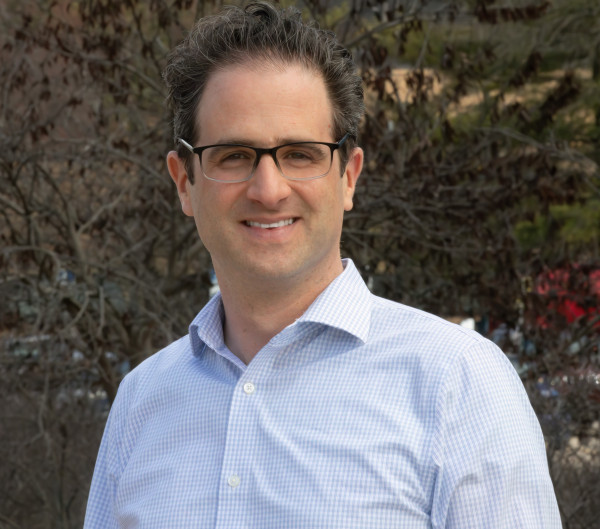MARVEL Distinguished Lecture — Emmanouil Kioupakis
It will take place on Tuesday, June 20, 2023, 3 pm (CEST).
Practical details:
- In-person participation: room MED 2 1124 (Coviz2), EPFL
- Remote participation: Zoom link

Advancing the state of the art in semiconductor technology through predictive atomistic calculations: from uncovering fundamental limitations to discovering new materials
Advancing the state of the art in modern semiconductor technology requires a fundamental understanding of the microscopic quantum processes that govern the operation of electronic and optoelectronic devices. For example, the energy conversion efficiency of solar cells, light-emitting diodes, and high-power electronics is determined by quantum processes involving the interactions among electrons, excitons, photons, and phonons. While many of these processes are direct and can be accurately treated with first-order perturbation theory, others, such as optical transitions in indirect-gap materials, are enabled only by the additional momentum provided by phonons, necessitating a higher-order treatment that increases computational complexity. An accurate and predictive treatment of these phonon-mediated quantum processes is necessary to understand the fundamental energy conversion limits in devices. In parallel, understanding the inherent connection of the electronic properties of semiconductor materials to their underlying chemistry and structure is vital in order to discover and design new semiconductors with desirable properties.
In this talk, I will present our work on the development and application of first-principles computational methods to uncover fundamental limitations and discover new materials for semiconductor technology. First, I will discuss how phonons enable light absorption in technologically important indirect-gap semiconductors, such as silicon, and how these processes enable the operation of silicon solar cells—the most successful solar-cell technology to date. I will also address how these phonon-mediated transitions introduce detrimental optical losses in metals and doped semiconductors. Additionally, I will present our methodology for studying non-radiative Auger-Meitner recombination in semiconductors—an essential non-radiative electron-hole recombination mechanism that limits the quantum efficiency of devices. I will demonstrate the crucial role of phonons in accurately quantifying the Auger-Meitner loss in silicon solar cells and in nitride light emitters.
Furthermore, this talk will also highlight the application of atomistic calculations to understand defects and dopants in semiconducting oxides. I will discuss the inherent limitations of current state-of-the-art materials such as diamond, AlGaN, and Ga2O3 as ultra-wide-band-gap semiconductors in power-electronic applications. Instead, I will present the computational discovery of rutile GeO2 as a superior alternative ultra-wide-band-gap semiconductor with a performance in power-electronic applications, as determined by established figures of merit, that surpasses all known semiconducting materials.
Our work demonstrates the crucial role of predictive atomistic calculations in understanding the quantum processes underlying energy conversion and loss in modern electronic and optoelectronic devices, and in facilitating the development of new materials with superior properties that advance the state of the art in semiconductor technology.
About the speaker
Emmanouil (Manos) Kioupakis is an Associate Professor of Materials Science and Engineering and of Applied Physics, and the Karl F. and Patricia J. Betz Family Faculty Scholar at the University of Michigan. His work focuses on the development and application of first-principles computational methods for the theoretical characterization and computational discovery of novel electronic materials. He has been awarded the National Science Foundation CAREER award, the Jon R. and Beverly S. Holt Award for Excellence in Teaching, and the 1938E Award by the College of Engineering of the University of Michigan.
Did you miss previous MARVEL Distinguished Lectures? You can watch them on the Materials Cloud dedicated page.
Low-volume newsletters, targeted to the scientific and industrial communities.
Subscribe to our newsletter